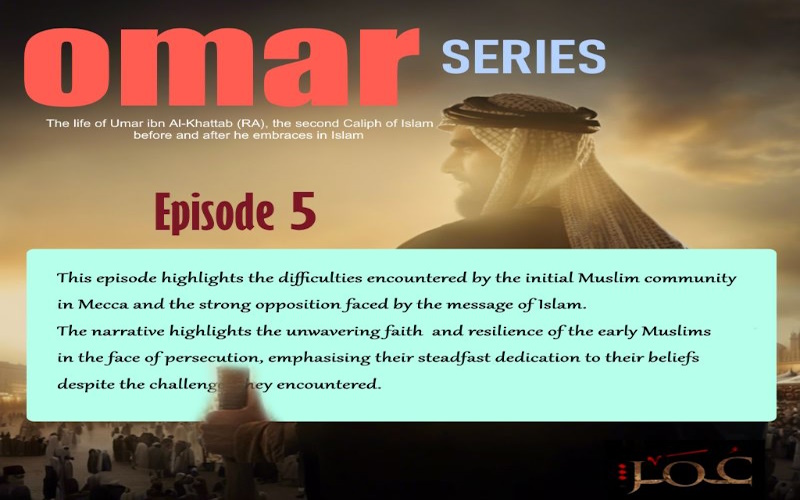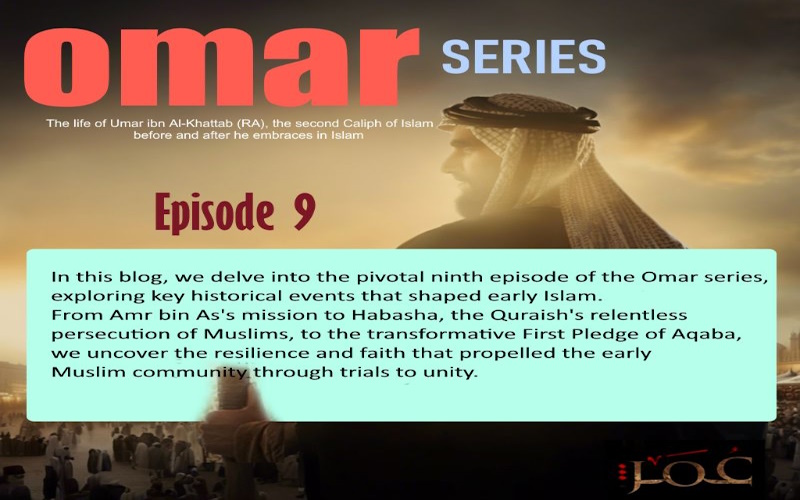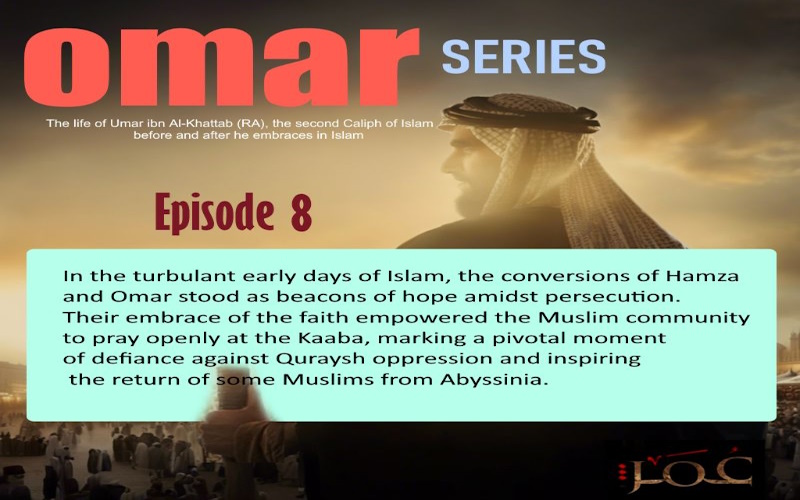The early days of Islam in Makkah were marked by a profound ideological battle, a struggle between the customs of the Quraysh and the revolutionary message brought forth by Prophet Muhammad (peace be upon him). The fourth episode of the “Omar Series” captures this troublesome period with a focus on the internal conflicts within the Quraysh leadership, as well as the personal transformations of individuals who were touched by the message of Islam. In this detailed analysis, we will explore the historical accuracy of the events portrayed in the episode, referencing authentic narrations from the Seerah (biography) of the Prophet Muhammad and relevant Quranic verses.
The Socio-Political Context of Makkah
Before diving into the specifics of the episode, it is crucial to understand the socio-political landscape of Makkah during the early 7th century. The city was a thriving trade hub, famous for housing the Ka’aba, a sanctuary for the polytheistic rituals of various Arab tribes. The Quraysh, the ruling tribe to which Prophet Muhammad belonged, enjoyed economic prosperity and considerable influence over the Arabian Peninsula.

The Rising Tensions and the Quraysh’s Response
The episode commences with the depiction of rising tensions between the Muslims and the Quraysh. Prophet Muhammad’s message of monotheism and social reform was seen as a direct threat to the Quraysh’s religious authority and economic interests. The elders of the Quraysh, in their council, devised strategies to counteract this emerging challenge. Historical sources, such as Ibn Ishaq’s “Sirat Rasul Allah” and Ibn Hisham’s recension of it, provide accounts of the Quraysh’s tactics, which included persecution, propaganda, and attempts to negotiate with and discredit Prophet Muhammad.
The Character Struggles: Sohail and His Family
A central plotline of the episode revolves around Sohail ibn Amr, a notable member of the Quraysh, and his family. Sohail’s son, Abu Jandal, is portrayed as a silent observer, while his other son, Abdullah, challenges his father’s rhetoric against the Prophet. Abdullah’s argument that “To be inarticulate but be truthful is better than to be articulate but false” echoes the values promulgated by Islam, which emphasizes truthfulness as a cardinal virtue, even as mentioned in the Quran: “O you who have believed, fear Allah and be with those who are true.” (Quran 9:119)
Sohail’s anger at being questioned by his son reflects the inner turmoil faced by many Quraysh members. They had known Muhammad as “Al-Amin” (the Trustworthy) long before his prophethood, and this sudden shift to portraying him as a sorcerer and a liar was a morally dissonant stance for them. The historical texts, however, do not provide specific instances of conversations within Sohail’s family but do document the general atmosphere of confusion and moral conflict among the Quraysh.
The freeing of Salim and the Quranic Guidance
One poignant scene from the episode shows the public freeing of Salim, a slave who had embraced Islam. The act of setting free by his master, Abu Hudhayfah, a Muslim, serves as a thematic representation of Islam’s stance on equality and human dignity. The Quran addresses the issue of slavery and emancipation in several verses, encouraging the freeing of slaves, as seen in Surah Al-Balad: “And what can make you know what is the difficult pass? It is the freeing of a slave.” (Quran 90:12-13)
The Defamation Campaign Against Prophet Muhammad
The campaign led by the Quraysh to defame Prophet Muhammad is vividly portrayed in the episode. The use of derogatory terms and accusations of sorcery were historically documented attempts to sway public opinion against him. The Quran itself refers to these accusations, with Allah revealing to the Prophet: “And We know that you, , your chest is tightened by what they say.” (Quran 15:97) The revelation provided solace and support to the Prophet during these trying times.
The Quest for Truth Over False Eloquence
The dialogue between Sohail and Abdullah raises a critical question about the nature of truth and the ethical responsibility to uphold it. Abdullah’s stance is a testament to the Quranic teaching that upholds truthfulness, as Allah says: “And mix not truth with falsehood, nor conceal the truth while you know .” (Quran 2:42) This episode thus uses the characters to explore the broader ethical dilemmas faced by the Quraysh.
The Role of Personal Integrity
Abdullah’s character in the episode symbolizes the struggle for personal integrity in the face of societal pressure. His challenge to his father’s inconsistent portrayal of Muhammad reflects the Quranic verse that encourages reflection and the pursuit of truth: “Will they not then ponder on the Qur’an? If it had been from other than Allah they would have found therein much incongruity.” (Quran 4:82)
Conclusion
The fourth episode of the “Omar Series” dramatizes the complex interplay of personal faith, societal norms, and political power during the early days of Islam. While specific conversations and interactions between characters like Sohail and his sons may not be directly traceable to historical sources, the overarching themes and conflicts presented are consistent with the authentic narrations from the Seerah. The episode skillfully engages the viewer by weaving together the internal struggles of the Quraysh with the steadfast character of the early Muslims, highlighting the enduring relevance of the principles of truth and integrity found within the teachings of the Quran.
As we analyze the events of this episode, it is essential to approach them with a nuanced understanding of the historical context, recognizing the blend of artistic interpretation and historical fact. The “Omar Series” serves as a narrative bridge, connecting us to a pivotal era that shaped the course of Islamic history and continues to inspire millions around the world to this day.
(Note: The article above is a fictional analysis based on the given description of a TV series episode. The actual Seerah contains extensive records, but specific conversations and character dynamics like those described may not be directly found in historical texts.)









